This article on ‘Maneka Gandhi vs Union of India: All you need to Know’ was written by Akriti Parashar, an intern at Legal Upanishad.
Introduction
This case was one of the most important and landmark cases which help re-establishing people’s trust in the judiciary. It is also popularly known as the personal liberty case or Maneka Gandhi’s Case. This case not only expanded the scope of Article 21 but also strengthens Article 19 and Article 14. In this landmark case, the rule of the Golden Triangle was set up, which build a new path for part III of the Constitution. Article 21, Article 14 and Article 19 would be read along with each other. It shows that the “due process of law” notion is as important as the “procedure established by law.” This article attempts to analyse the landmark judgement of Maneka Gandhi vs the Union of India.
Facts of the case
- Maneka Gandhi was a journalist and was running a magazine called Surya Magazine.
- On 1 June 1976, her passport got issued as per the Passport Act 1967.
- On the 4th of July 1977, she got a letter dated 2nd July 1977 that the Indian government under section 10 (3) (c) of the Passport Act 1967, has choose to impound her passport.
- The letter was issued by the New Delhi Regional Passport Office, to confiscate her passport in the interest of the general public.
- She needed to hand over her passport within less than 7 days of receiving a letter.
- She straight away addressed the New Delhi regional passport officer to give her a written copy of the explanation for impounding her passport.
- On 6th July 1977 the Ministry of External Affairs stated that in the general public’s interest, it is decided that she would not get a furnished copy of the reasons explaining the confiscation of her passport and she needs to surrender it.
- Under Article 32 she filed a writ petition in the Supreme Court, for impounding her passport and not giving any reasons.
- She stated that Article 21 of the constitution which guarantees her Right to personal liberty gets violated when her passport gets confiscated without any reason given.
Issues before the court
- Right to travel abroad, a part of Article 21 under the right of personal liberty or not?
- Is the Right to Travel Abroad a part of the right of personal liberty under Article 21 or not?
- Are Article 21, Article 19, and Article 14 or the Golden Triangle of the Indian Constitution, mutually exclusive or are they connected with each other?
- What is the ambit of “Procedure established by law”
- Does the Passport Act of 1976’s section 10 (3) (c) violate fundamental rights?
Contention by Petitioner
- Maneka Gandhi contended that impounding her passport without any reason violates her fundamental rights under articles 21, 19 and 14 and the right to travel abroad.
- Section 10 (3) (c) of the Passport Act 1967, violates her fundamental right.
- The right to travel abroad is her fundamental right provided under Article 21 of the constitution and she cannot be denied her rights other than in accordance with the legal procedure.
- She contended that provisions given under Articles 21, 19 and 14 are related to each other and are inconsonant with each other.
- The procedure laid out by law should be equitable, just and rational and not arbitrary.
- She was not given a chance to be heard which is a supreme factor of the Principle of Natural Justice.
Contention by Respondent
- The respondent stated that Maneka Gandhi’s passport was confiscated because she needed to appear for a government hearing.
- Respondent contended that the “procedure established by law” in Article 21 doesn’t have the necessity to clear the reasonability test and be in accordance with Articles 19 and 14.
- They refer to the case of A K Gopalan which stated the meaning of the word ‘law’ under Article 21 cannot be acknowledged as mentioned in the principles of Natural Justice.
Judgement of the court
- The Supreme Court referred to its old judgement of Satwant Singh Sawhney vs Assistant Passport Officer which states that Article 21 which guarantees the right to life and personal liberty will also cover freedom to travel abroad as a fundamental right.
- No one should be taken away from this right other than in accordance with the legal procedure.
- The Supreme Court overruled its earlier judgement given in A K Gopalan and stated that Articles 21, 19 and 14 are interrelated with each other and any law that the legislative makes has to pass the test of the said provisions.
- The court declared section 10 (3) (c) void as it violates Article 14 because the petitioner was not given an opportunity to be heard and it also violates Article 21 as the government failed to follow the procedure established by law.
- “Procedure established by law” should be fair and reasonable and non-arbitrary. It should be rational. The action of confiscating the petitioner’s passport was arbitrary in nature.
Suggestions
- Both the “procedure established by law” as well as the “due process of law” is important, and both go simultaneously with each other.
- Articles 21, 19 and 14 are interconnected, so it has become helpful for the citizens of India.
Conclusion
The judgement given in this case widened the scope of Article 21 and strengthen Articles 14 and 19. It highlighted the relationship between Articles 21, 19 and 14 and shows how they are interconnected with each other, if the right to life and personal liberty under Article 21 is breached, Articles 19 and 14 will also be breached. Under the Passport Act 1967, section 10 (3) (c) gives the power to the government to confiscate anyone’s passport to maintain the sovereignty and integrity of the nation.
After this case, the court becomes strict and makes sure that no one is denied their right to be heard. But the mere existence of law is not enough, law should be fair and reasonable. The court held that the confiscating of the passport without any reason given is not rational and it violates fundamental rights. The concept of “procedure established by law” should be brought into the definition of the “due process of law.”
References
- Maneka Gandhi vs Union of India, available at: https://indiankanoon.org/doc/1766147/, (Last visited on May 6, 2023).
- Maneka Gandhi vs Union of India: Judgement, Summary of Maneka Gandhi case, available at: https://byjusexamprep.com/upsc-exam/maneka-gandhi-vs-union-of-india, (Last Visited on May 7, 2023).
- Case Analysis on Maneka Gandhi vs Union of India, 1978: The Golden Triangle, available at: https://www.legalserviceindia.com/legal/article-7094-case-analysis-on-maneka-gandhi-v-s-union-of-india-1978-the-golden-triangle.html, , (Last Visited on May 7, 2023).
- Maneka Gandhi v. Union of India, 1978 AIR 597, 1978 SCR (2) 621, available at: https://blog.ipleaders.in/maneka-gandhi-v-union-of-india/, (Last Visited on May 7, 2023).
- Maneka Gandhi case- Indian Polity Notes, available at:https://prepp.in/news/e-492-maneka-gandhi-case-indian-polity-notes, (Last Visited on May 7, 2023).
- Maneka Gandhi’s Case, available at: https://unacademy.com/content/upsc/study-material/polity/maneka-gandhis-case/, (Last Visited on May 7, 2023).

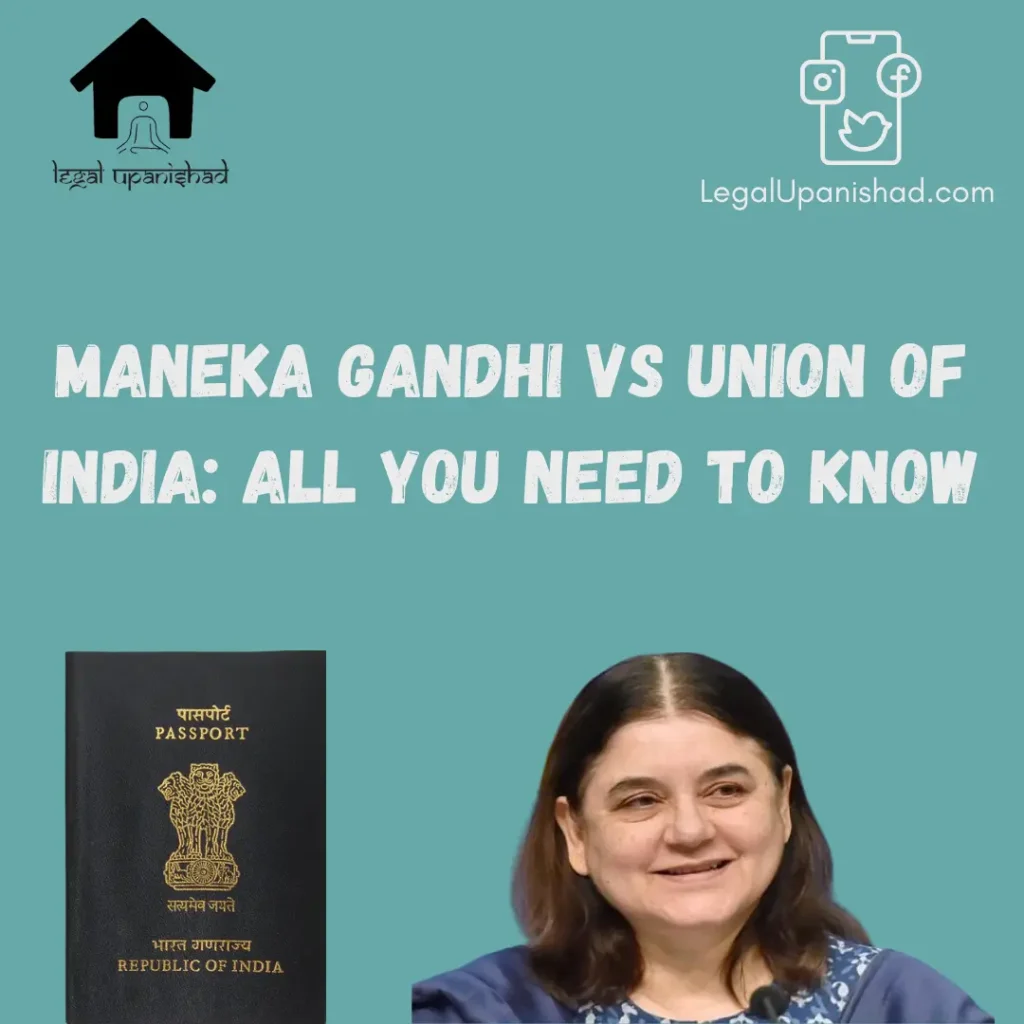
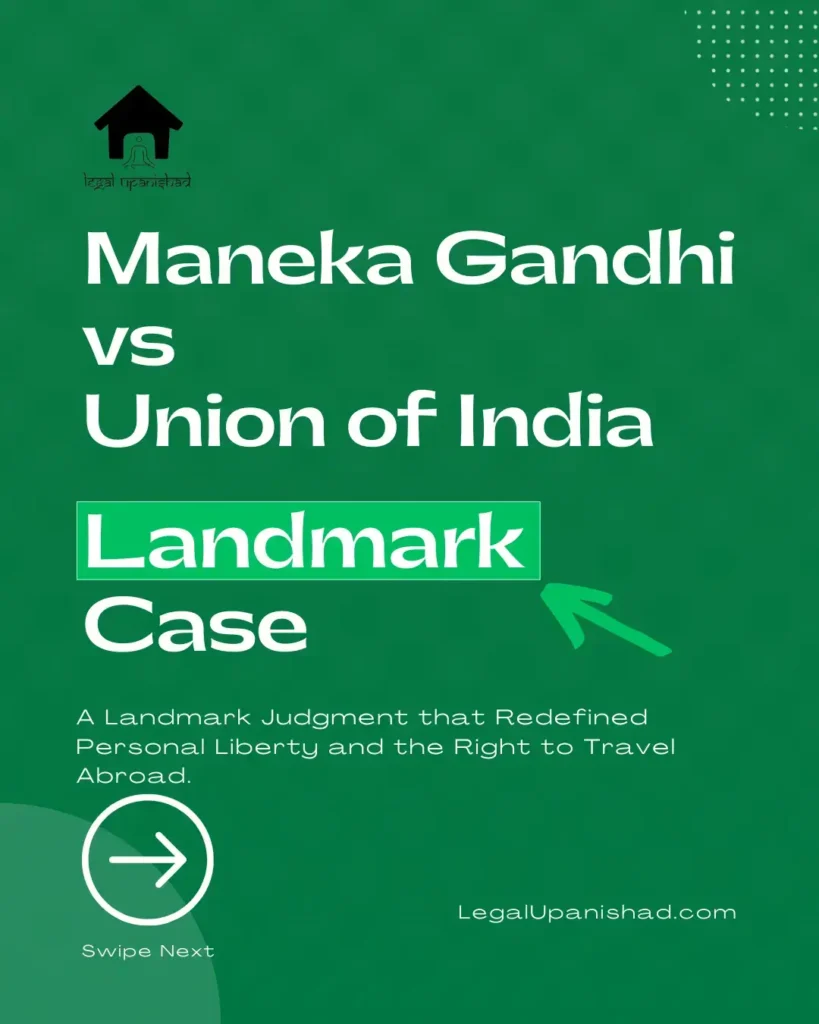

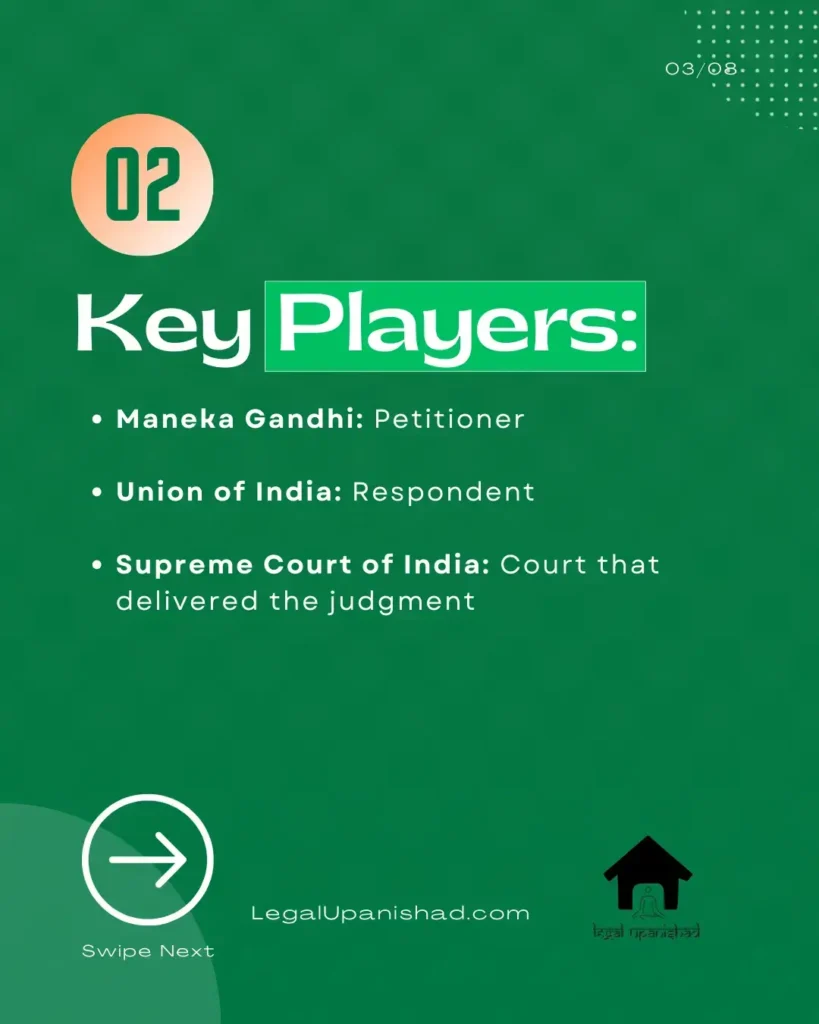
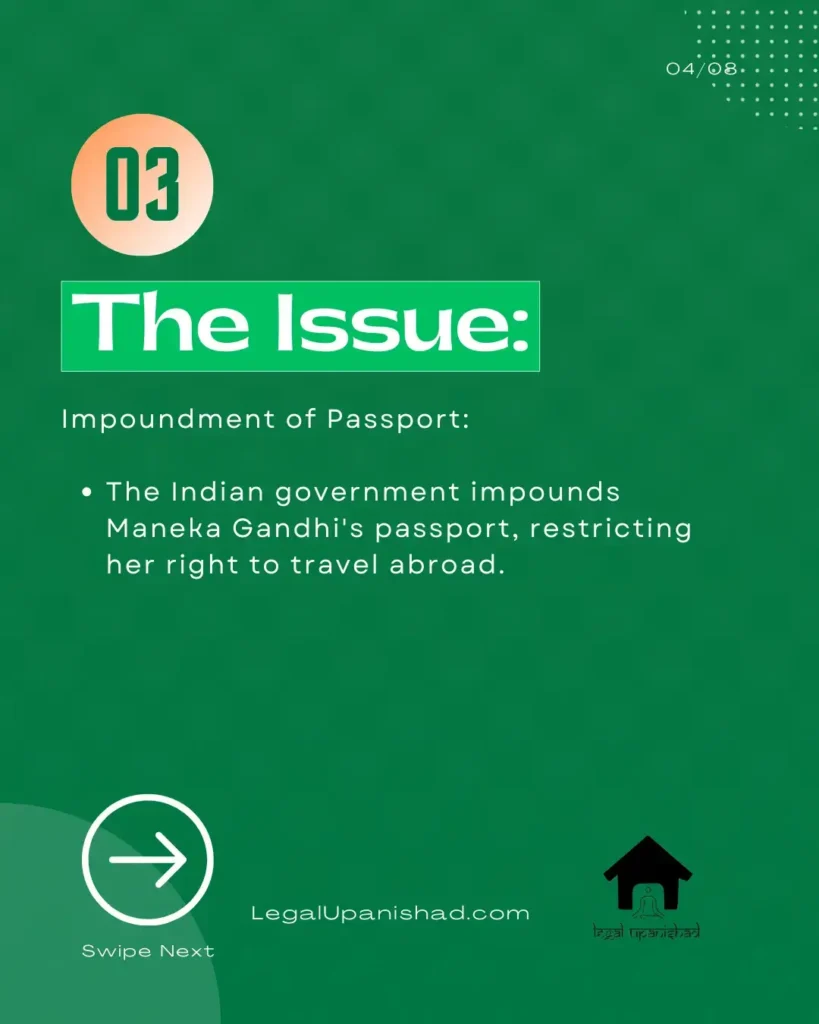
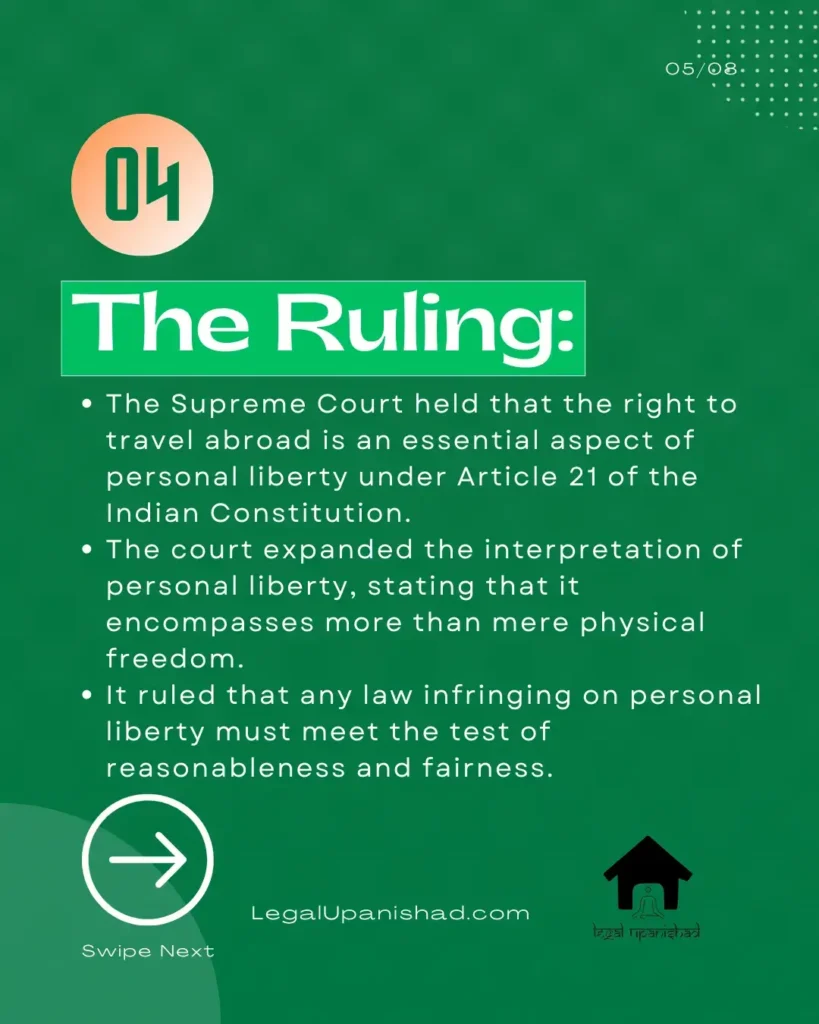
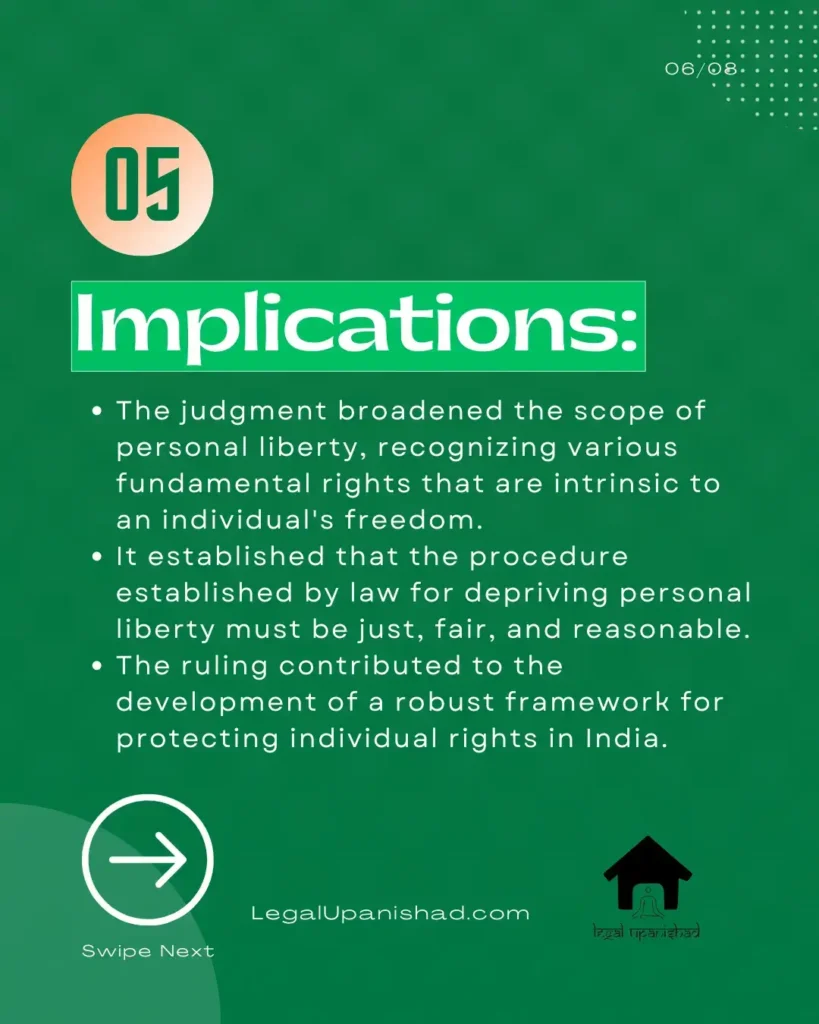

Nice 👏